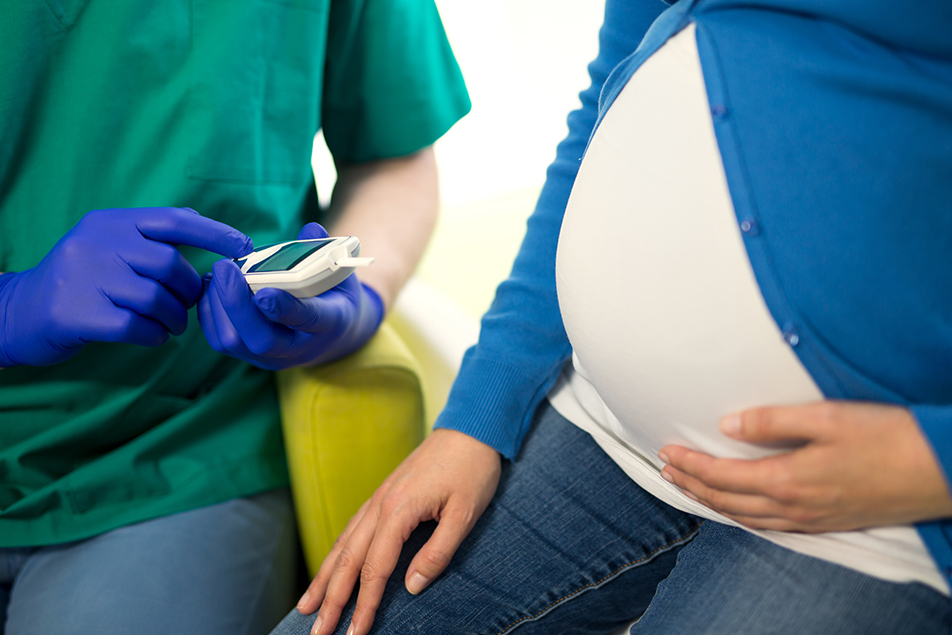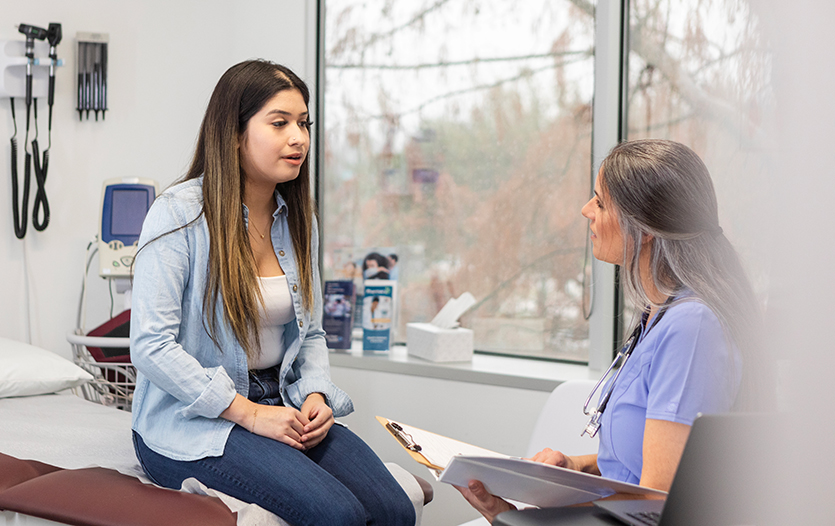
According to the Centers for Disease Control and Prevention (CDC), approximately 6-9% of pregnant women in the United States will develop gestational diabetes. Geoffrey Gordon, MD, PPG – Maternal-Fetal Medicine, explains what causes the condition, how it’s diagnosed and how women can manage the risks.
What causes gestational diabetes?
The condition results from a complex interaction of hormones from the placenta that decreases the mother’s ability to remove sugar (glucose) from the bloodstream.
How is gestational diabetes diagnosed?
Typically, between 24-28 weeks of pregnancy, expecting mothers will perform a one-hour glucose tolerance test (GTT). This involves drinking a sugar drink and having your blood sugar level checked one hour later. This screening test gives your obstetrical provider information to see if you are at an increased risk for gestational diabetes.
If you are at an increased risk, you will be asked to perform a three-hour diagnostic GTT, where your blood sugar level will be checked while you are fasting and then every hour following a sugar drink, for up to three hours. If two or more of the values are elevated, the patient is diagnosed with gestational diabetes.
Should I get a GTT before 24 weeks?
Some women are at an increased risk for gestational diabetes and possibly underlying type 2 diabetes. The American College of Obstetricians and Gynecologists list the risk factors that should lead to an early one-hour GTT, which include:
- medical issues such as, an increased body mass index
- a history of gestational diabetes in a previous pregnancy
- a family history of diabetes
Women with an increased risk for diabetes in pregnancy should be offered early screening (ideally in the first trimester). If the screening results are normal, you should still have the one-hour GTT repeated at 24-28 weeks of pregnancy.
How is gestational diabetes treated?
After the diagnosis of gestational diabetes is made, you should be referred to a diabetic educator, who will teach you how to check your sugars and about how much sugar you need to eat. It’s important to have a balanced amount of sugar in your diet, even if you’re diagnosed with gestational diabetes. Fetuses receive their main source of energy from sugar. Therefore, keto diets are not recommended during pregnancy.
After diabetic education, you will have follow-up to determine if you need medications to control your blood sugar levels. Many patients are referred to the Advanced Perinatal Care Center at Parkview for diabetes management, although some obstetrical providers may be comfortable with gestational diabetes management. You should expect to have increased monitoring of the estimated fetal weight and overall well-being, especially if you are started on any medications to control gestational diabetes.
What happens to my gestational diabetes after delivery?
After delivery, gestational diabetes frequently resolves. It’s important to remember that after the diagnosis of gestational diabetes, you are at an increased risk for developing type 2 diabetes in the future. You should have a glucose tolerance test (another sugar drink!) at your six-week post-partum visit to demonstrate that the gestational diabetes truly resolved. If the post-partum assessment demonstrates resolution of gestational diabetes, you should repeat the test at least every three years to evaluate for type 2 diabetes.
The Parkview difference
Parkview offers comprehensive gestational diabetes care. This includes diabetic educators, obstetrical providers qualified in early detection and diagnosis of gestational diabetes, and the Advanced Perinatal Center. The Advanced Perinatal Center has a dedicated pregnancy diabetic educator, nurse practitioners specialized in diabetes and pregnancy management, ultrasonographers specialized in fetal assessments and PPG – Maternal-Fetal Medicine physicians to create a multidisciplinary team to keep both you and your baby safe throughout your pregnancy.




